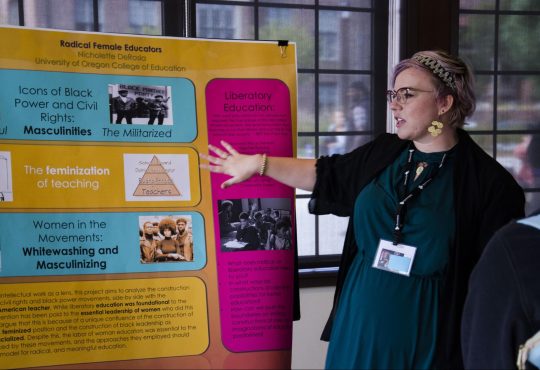The college years are said to be the best years of a young adult’s life, but recent research has shown that high personal expectations are affecting the emotional health of college freshmen. The pressure to excel seems to be taking a toll on students’ health.
“The American Freshman: National Norms for 2010,” a study published by the University of California at Los Angeles Higher Education Research Institute, reported that 75.8 percent of the students surveyed reported their drive to achieve as “above average.” This report of high personal drive contrasts with the percentage of students who reported “above average” emotional health, which came out to 51.9 percent. According to the study, 29.1 percent of freshmen “frequently felt overwhelmed by all they had to do.”
“As a music major, you are required to participate in an ensemble so there is a lot of outside work you have to do on top of homework from other classes, and you have to maintain good grades all around. The academics at Puget Sound are hard. You are supposed to push through things and learn, which is just part of the liberal arts education,” freshman Hannah Wynn said, adding, “There are some nights when you know you’re gonna have to stay up late, but you just have to get it done.”
“I feel stressed because of my grades and trying to transition to this new style of education,” freshman Eric Lau remarked.
The percentage of freshmen who perceived their drive to achieve as above average and the percentage that frequently felt overwhelmed were at record highs since 1985, whereas the percentage who saw their emotional health as above average was at a record low, according to a report in The Chronicle of Higher Education.
In the same report, Association for University and College Counseling Directors President Denise Hayes noted that increased pressure to excel is in part attributed to financial concerns.
”Financial stuff and wanting to succeed and pleasing your parents and earning your tuition are all major stress factors. And on top of managing financial matters, it’s managing your own time for the first time and owning up to your responsibilities,” Wynn said.
According to The Chronicle, Hayes also stated that anxiety, as opposed to depression, has become the most pressing of students’ emotional-health issues. Of the freshmen who reported low emotional health, 11 percent said that they believed they would need counseling in college compared to the 8 percent of those who reported high emotional health.
“All of the professors have been really helpful so far. They’ve referred me to CHWS or Academic Advising or the Center for Writing and Learning. I haven’t taken advantage of many of those opportunities, but it helps to know they’re there,” Wynn said.
It seems as though students may not be utilizing the university’s resources because of busy schedules. However, culturally it has become more acceptable for students to seek counseling or health services because the negative stigmas associated with it have been reduced.
“What we have seen, in the past ten to fifteen years is that, percentage wise, more students are seeking counseling services. I think the percentage was something like 10-12% ten years ago, whereas it’s at around 22% now,” Psychologist and Substance Abuse Prevention Coordinator Charee Boulter said.
At Puget Sound, the week-long freshmen orientation program functions to ease students into social and community life at and around the university, whereas required freshmen seminars on writing and scholarly and creative inquiry function to familiarize students with academic expectations.
“Six Pack of Common Sense,” which is a seminar on alcohol use put on by Student Development, is also required of incoming students to familiarize them with healthy life style choices.
“In terms of the health and wellness of students, it really depends on how well-connected you are on campus. For example, LGBT student getting involved with B-GLAD, or a student who really likes sports to be involved in intramurals, or getting involved in Greek Life. Student groups likes that really contribute to your health and well-being,” Post-Doctorial Resident Michael Shrifter said.






